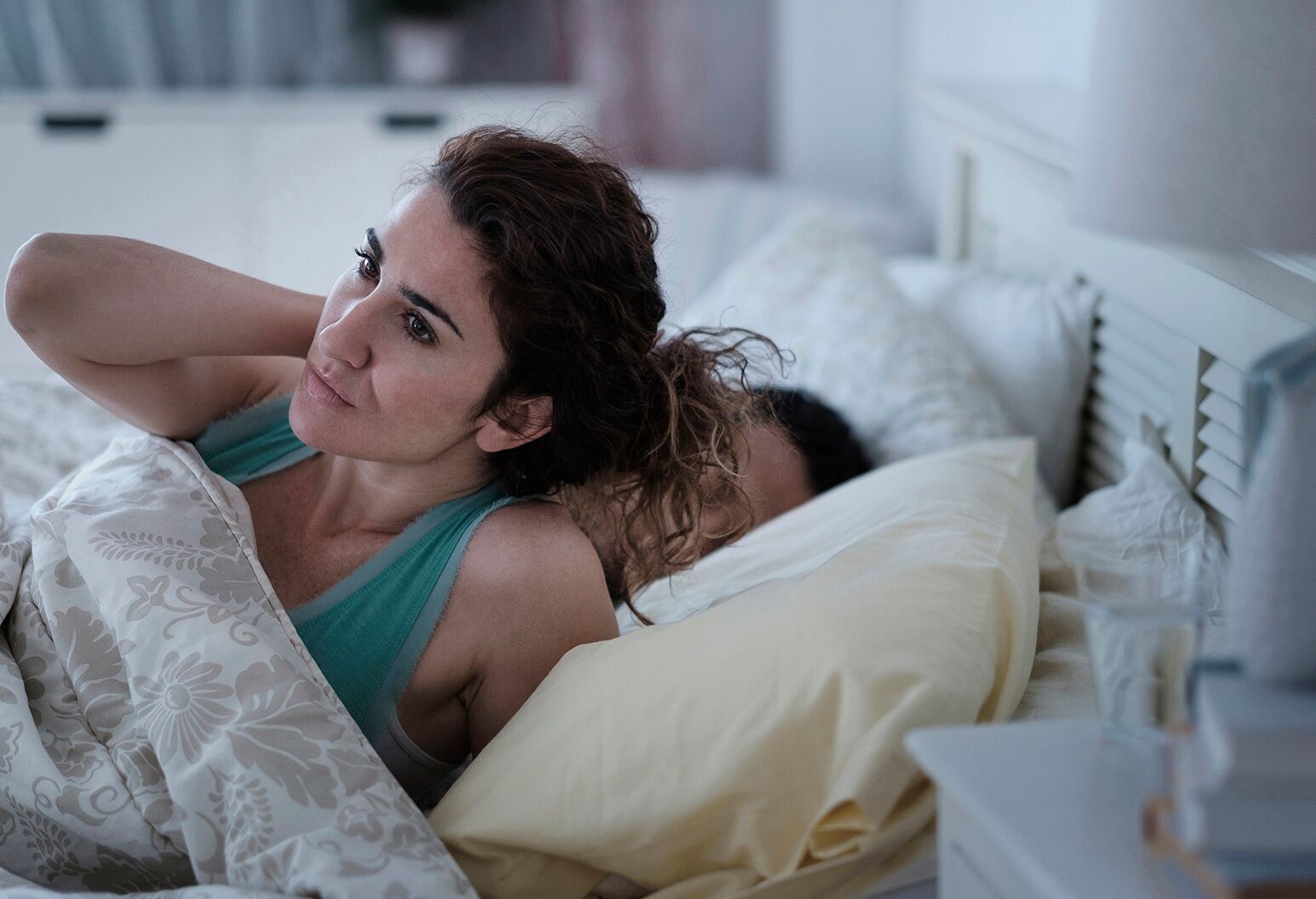covid
Long COVID’s Impact On The Brain

Finding yourself plagued by nightmares, insomnia, disrupted sleep patterns, and the like in recent weeks? You’re not alone. That’s because for many, these nighttime disturbances—caused by uncertainty and anxiety around the coronavirus pandemic—have become a real and normal response to this unprecedented event. But quality sleep is important for a healthy immune system and for keeping us alert and functioning in our waking lives.
“There has been a major change in our routines and the overall structure of our daily lives,” says Lauren Broch, PhD, a psychologist at the Northwell Health Sleep Disorders Center. “The future is uncertain and there is plenty on our minds that can keep us awake at night. But what’s worse is how we feel during the day when we haven’t been able to sleep well.”
“We have a sleep system and an awake system and normally, they dance together,” Broch explains. “But when you’re more anxious, the wake system tends to take over.”
The brain functions to keep us awake and alert to potential threats, such as the proverbial sabretooth tiger. Anxiety, therefore, can make us hypervigilant, keeping us cognizant of our surroundings (Am I 6 feet away from that person?), washing our hands, wearing masks, checking for unusual symptoms, or even walking out our front doors to get some air or make risky trips to the grocery store. It can also get hijacked by existential fears about job loss, our safety, not knowing how long this pandemic will last or what our lives will be like when it is finally over.
That hypervigilance can interfere with the sleep system and the release of naturally occurring chemicals including melatonin, that signal that it’s time for us to go to sleep.
When we do go to sleep, we may be awakened by nightmares and disturbing dreams. “There’s more confusion and uncertainty about the future and we may be processing those fears in our dreams,” explains Broch.
Continued or chronic lack of sleep dulls vigilance, but not anxiety. “It begins to decrease our coordination, balance, and ability to pay attention, which can lead to accidents,” Broch says. It can also erode sex drive and mood, and can exacerbate existing conditions including chronic anxiety and depression.
Research has also shown that sleep deprivation can depress the immune system. People who are chronically sleep deprived are more susceptible to catching illnesses and slower to recover from them. Sleep deprivation can also be a risk factor for chronic diseases including Type 2 diabetes, obesity, and heart disease.
Broch says we can all get in the habit of better sleep, even now that our lives are dramatically different. “Sleep hygiene is basically principles, backed by science, that we understand help people sleep better.”
For starters, stick to the same daily bedtimes and wake times. They don’t need to be at the crack of dawn the way they may have been when we had to get children out to the door to school or to commute to the office, but regular for us, Broch advises.
Avoid doing things that require you to be awake in bed—that means working and eating. “When people associate the bed with other things besides sleep, then they begin to associate the bed with wakefulness,” Broch says.
Get some sun, even if it’s just through the window. Exposure to sunlight reduces levels of melatonin—the hormone that induces sleepiness—during the day, increasing wakefulness, and supports your body’s natural sleep and wake cycles.
Put down your phone. Disconnecting from the frantic news cycle when you’re naturally beginning to feel sleepy will help the brain transition from wakefulness. Exposure to artificial light can also disrupt the normal surge of melatonin at night, keeping you awake longer.
An important addition to good sleep hygiene, Broch emphasizes, is mindfulness. Become more conscious of relaxing your body by taking deep breaths and by doing progressive muscle relaxation that instructs you to tense and then release tension in different parts of the body. Don’t fret about how much sleep you aren’t getting or on checking everything on the sleep hygiene list.
“It’s not a time to make ourselves feel guilty about what we are or are not doing,” Broch says. “It’s more an opportunity to take better care of ourselves.”
Subscribe here to receive alerts for all things coronavirus and more from The Well.
The Well is Northwell Health’s commitment to the future of health care. In this time of information overabundance, much of which is inaccurate, unhelpful, or even difficult to understand, Northwell Health is on a mission to make a difference as an honest, trusted, and caring partner. The site connects with consumers to provide them with personalized content that reduces their stress, makes them laugh, and ultimately feel more confident and capable on their healthcare journey.